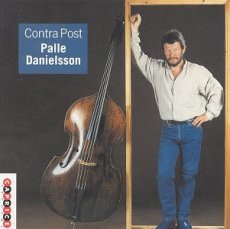
Daily Dose Of Jazz…
Palle Danielsson was born October 15, 1946 in Stockholm, Sweden and his childhood was an especially musical one. His first instrument he started playing at two was the harmonica and by age eight he was playing violin, which he continued to play and study for roughly five years. Around 13 he became interested in jazz music and started to play the double bass. By the time he was fifteen Palle was playing professionally.
Danielsson studied at the Stockholm Royal Academy of Music from 1962 to1966 and then began playing with Scandinavian musicians such as Eje Thelin, Bobo Stenson and Jan Garbarek and with Americans Lee Konitz and Steve Kuhn.
Perhaps most notable work was done with Keith Jarrett from 1974 to 1979 when he was a member of his European quartet. Over the years he has worked with Bill Evans, Kenny Wheeler, Geri Allen, Michel Petrucciani, Charles Lloyd, Peter Erskine, Ben Webster, George Russell and others.
Palle Danielsson has led and co-led several bands in Sweden, has recorded and released several albums and continues to perform and tour.
More Posts: bass
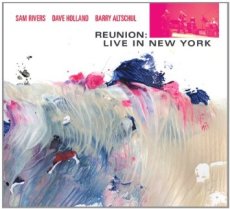
Daily Dose Of Jazz…
Samuel Carthorne Rivers was born September 25, 1923 in Enid, Oklahoma, the son of a gospel musician who sung with the Fisk Jubilee Singers and the Silverstone Quartet which exposed a young Sam to music at an early age. By 1947 he was in Boston studying Alan Hovhaness at the Boston Conservatory.
Active in jazz since the early 1950s, by the end of the decade he was performing with then 13 year-old drummer Tony Williams. In the mid Sixties he held a short-lived tenure with Miles Davis, producing the album Miles In Tokyo. He went on to sign with Blue Note leading four dates, his first being Fuschia Swing Song and contributing many more as a sideman.
A multi-instrumentalist, Rivers who plays soprano and tenor saxophones, bass clarinet, flute, harmonica and piano, is also a composer. Rooted in bebop and equally adept at free jazz he has performed and recorded with the likes of Quincy Jones, Herb Pomeroy, Tadd Dameron, Jaki Byard, Freddie Hubbard, Herbie Hancock, Andrew Hill, Larry Young and many others.
The 70s saw the rise of the loft era and Rivers ran RivBea in New York’s NoHo district where numerous performance lofts emerged. He continued to perform and record for a variety of labels including several albums for Impulse Records, two big band albums for RCA Victor, and joined Dizzy Gillespie’s band near the end of the trumpeter’s life.
With a thorough command of music theory, orchestration and composition, Rivers has been an influential and prominent artist in jazz music. He performs regularly with his RivBea Orchestra and Trio and is currently recording new works. Sam Rivers, who played soprano and tenor saxophones, bass clarinet, flute, harmonica and piano in the avant-garde and free jazz arenas, passed away on December 26, 2011 in Orlando, Florida at age 88.
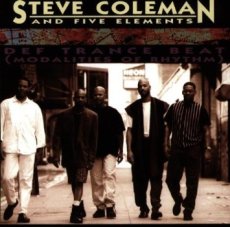
Daily Dose Of Jazz…
Steve Coleman was born on born September 20, 1956 in Chicago, Illinois and grew up in the musically rich Southside. As a child, he was in little singing groups, imitating the Jackson 5, singing in church and he started playing alto saxophone at the age of 14. About three years later he began to study the music of Charlie Parker, Sonny Rollins and John Coltrane and other masters.
He spent two years at Illinois Wesleyan University, transferred to Roosevelt University to concentrate on Chicago’s musical nightlife, having been introduced to Chicago premier saxophonists Von Freeman, Bunky Green and Sonny Stitt are just a few names from whom he learned.
Moving to New York in 1978 he joined the big bands of Thad Jones/Mel Lewis, Slide Hampton, Sam Rivers, and Cecil Taylor and was soon recording as a sideman with David Murray, Doug Hammond, Dave Holland, Mike Brecker and Abbey Lincoln. During this period he was playing the club circuit and putting a band together that would evolve into the Five Elements. He would go on to cofound the M Base movement with Cassandra Wilson and Greg Osby.
Influenced by Parker and Coltrane, gleaning improvisation from Von Freeman, composition from Sam Rivers and conceptual thinking from Doug Hammond, the alto saxophonist has added to his arsenal West African music, non-western cultures, Black American rhythm and blues and even nature by studying the flight patterns of bees. Steve Coleman continues to perform, record and tour and compose within the construct of contemporary jazz.
More Posts: saxophone
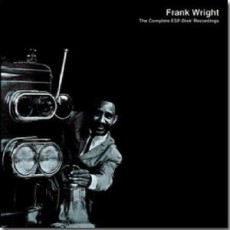
Daily Dose Of Jazz…
Frank Wright was born on July 9, 1935 in Grenada, Mississippi but grew up in Cleveland, Ohio. In his youth he started his musical career playing electric bass with Bobby “Blue” Bland, B. B. King and R&B bands in Memphis and Cleveland. But it was his meeting of Albert Ayler that he switched to the tenor saxophone, embraced the free jazz movement and moved to New York City in the mid-60s.
During this decade he played with some of the biggest names in avant-garde jazz including briefly with John Coltrane. He also made his first recordings as a leader for the ESP label but not finding an appreciative audience, Frank moved to Europe and spent the remainder of his life there.
Wright recorded for a few small labels, performed free jazz with expatriate American musicians and the European leaders of the avant-garde, and returned to the U.S. occasionally to perform with Cecil Taylor and the Art Ensemble of Chicago.
Tenor and soprano saxophonist and bass clarinetist Frank Wright, known for his frantic style, passed away on May 17, 1990.
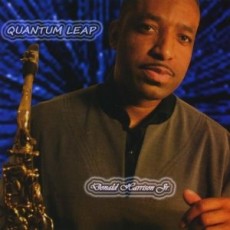
Daily Dose Of Jazz…
Donald Harrison, Jr. was born June 23, 1960 in New Orleans, Louisiana. He studied at the New Orleans Center for Creative Arts, and then went on to study at Berklee College of Music. In the 80s he became a Jazz Messenger, played with Roy Haynes, Jack McDuff, Terence Blanchard and Don Pullen, and was part of the re-formed Headhunters band in the Nineties.
By1991 Don had recorded “Indian Blues” capturing the sound and culture of New Orleans’ Congo Square in a jazz context and by mid-decade created the “Nouveau Swing” jazz style, merging the swing beat with many of today’s popular dance styles of music as well as those prominent from his cultural experiences in his hometown.
Harrison has performed in the smooth jazz arena, is a producer, singer and rapper in the traditional Afro-New Orleans Culture and hip-hop genres with his group, The New Sounds of Mardi Gras and is the Big Chief of the Congo Nation Afro-New Orleans Cultural Group that keeps alive the traditions of Congo Square.
Not limited by his music crossing genres in his compositions and playing, Don has created large orchestral pieces, was featured in Spike Lee’s HBO documentary “When The Levees Broke”, directed the New Jazz School for the Isidore Newman School, is the director of Tipitina’s Intern Program and has nurtured a number of young musicians including his nephew and Grammy-nominated trumpeter Christian Scott, Mark Whitfield, Cyrus Chestnut, Christian McBride and the Notorious B.I.G.
More Posts: saxophone


